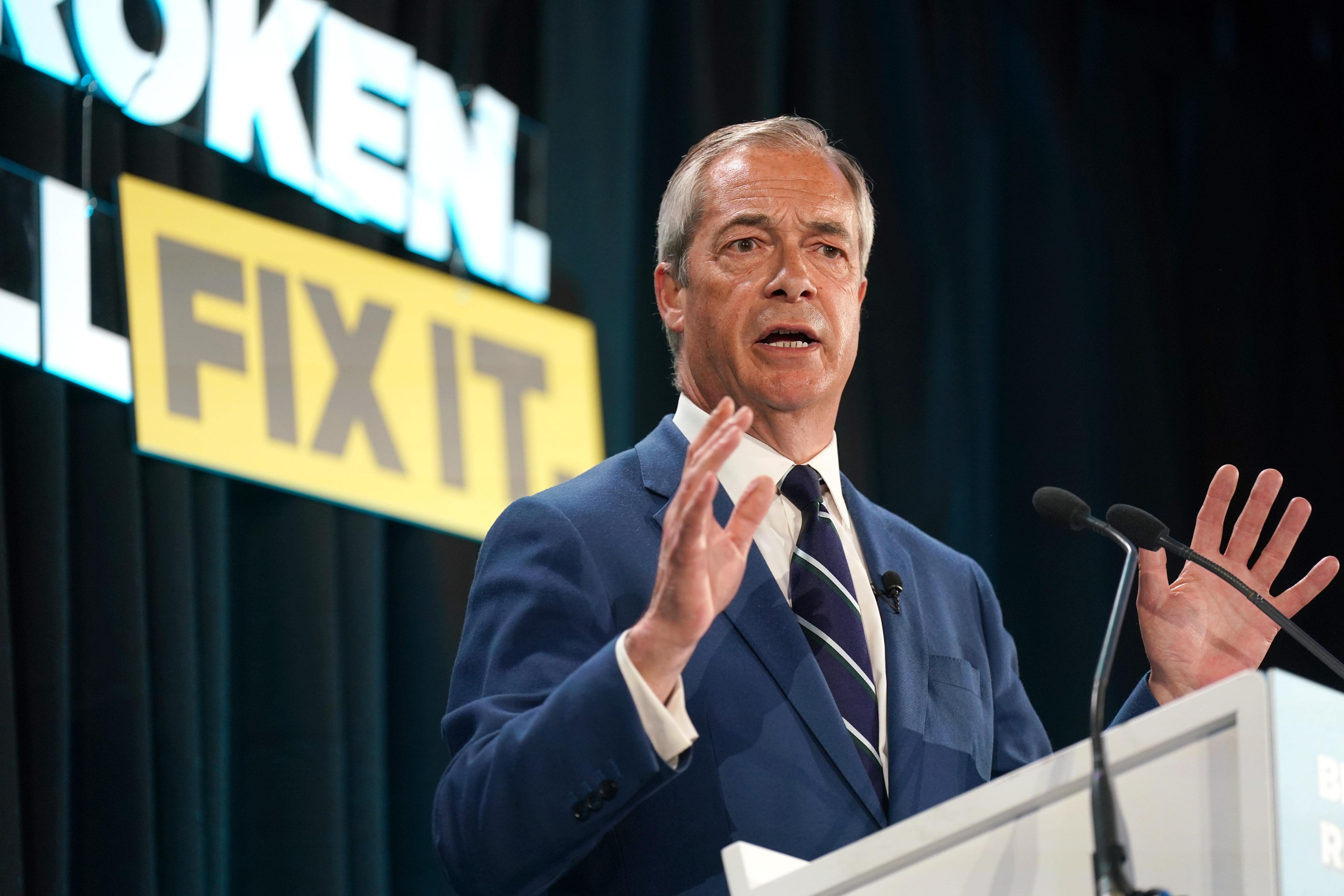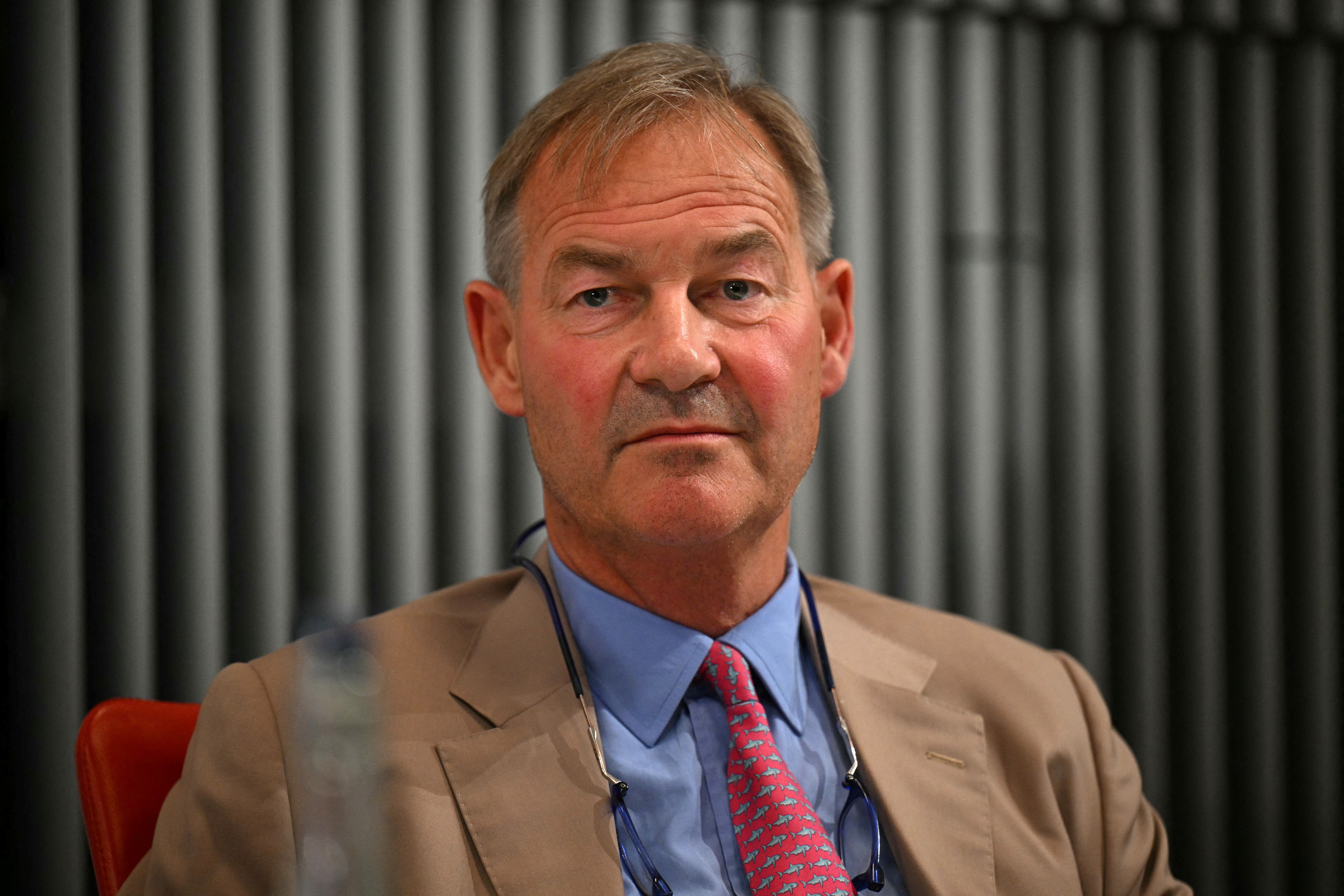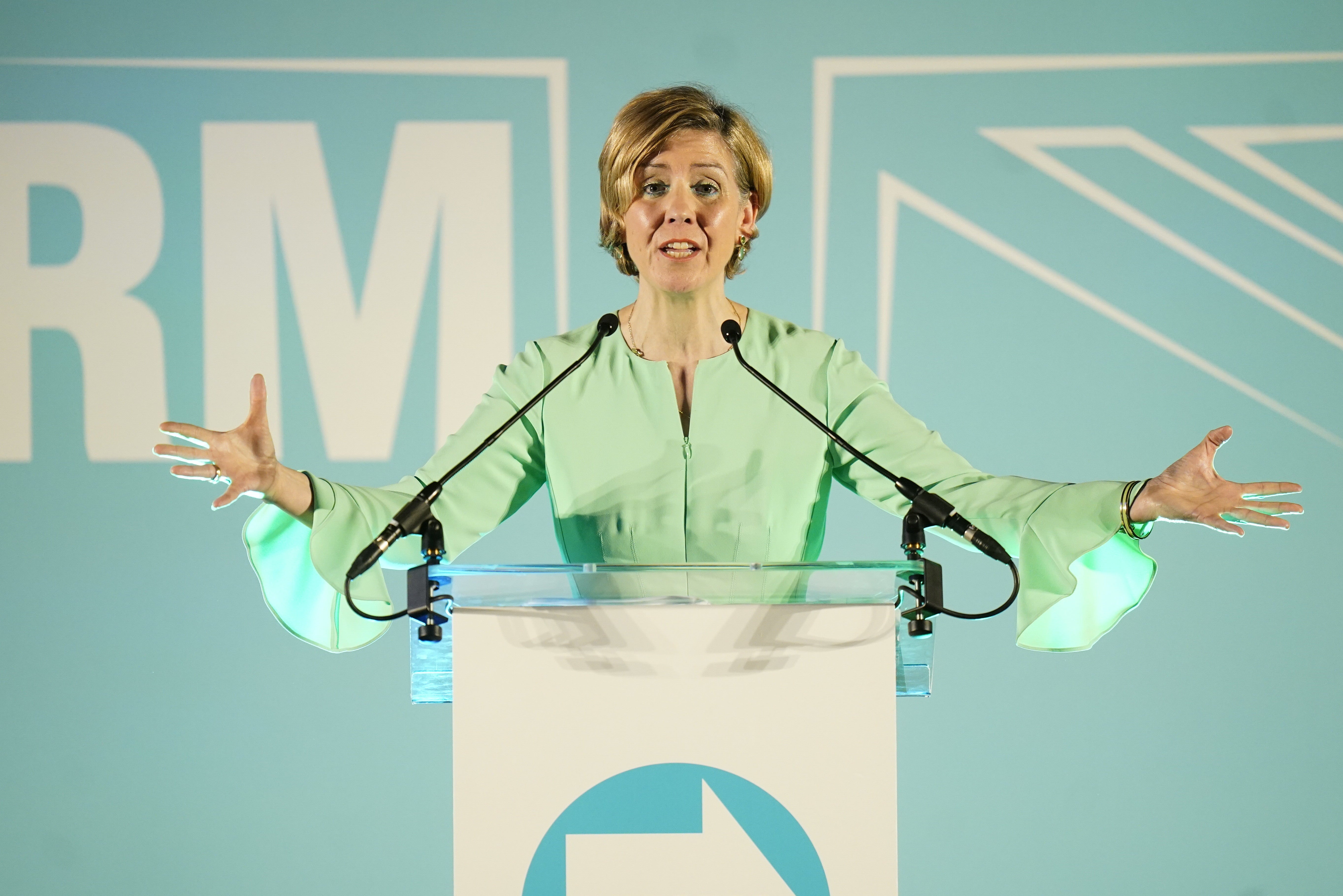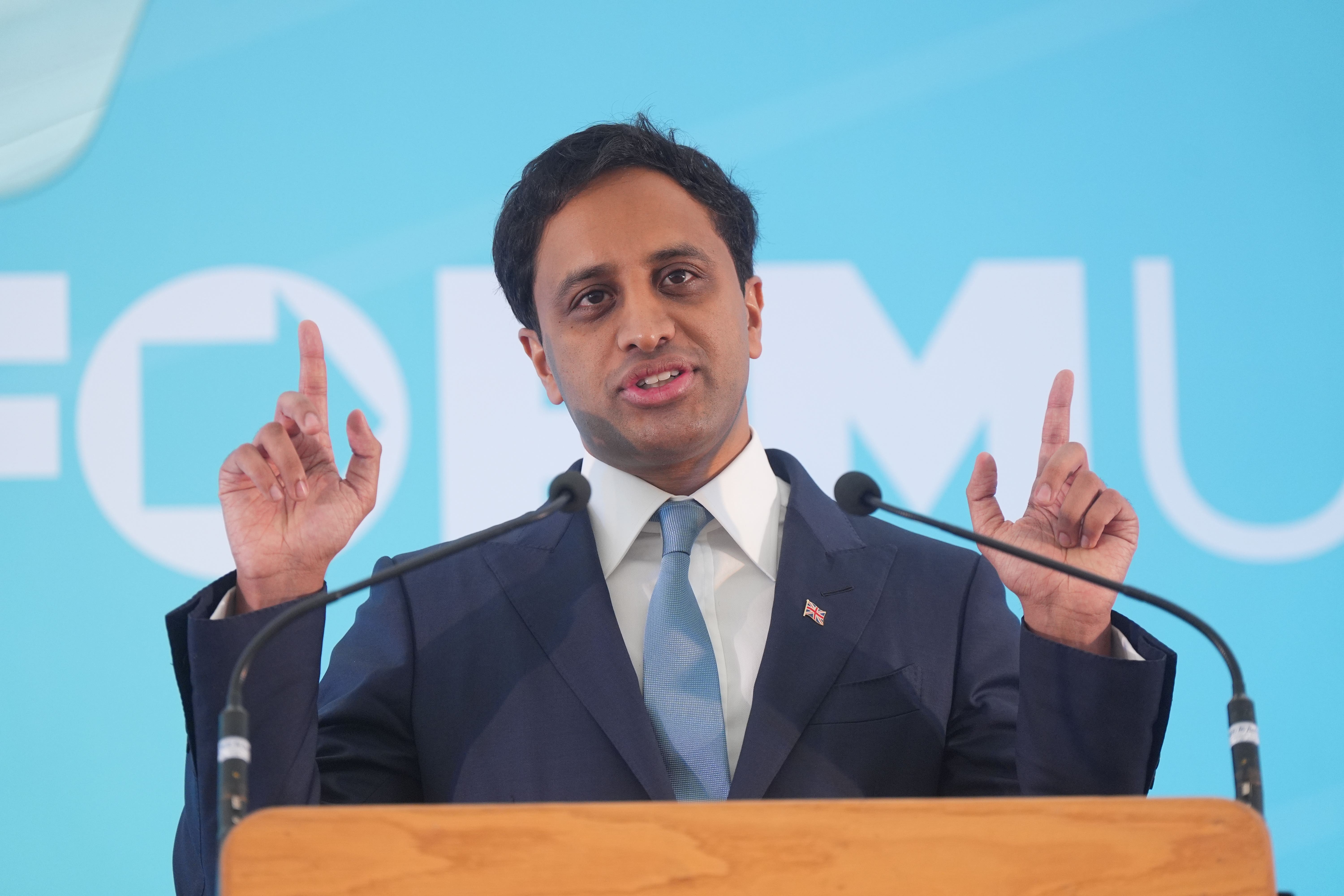Nigel Farage and Reform UK have found themselves sitting proudly at the top of various opinion polls since the general election on 4 July last year.
The latest Techne UK tracker poll for The Independent showed the party to be in joint first place with Labour, on 24 per cent each, two points ahead of Kemi Badenoch’s Tories.
But on 1 May, Farage and co will face their first big electoral test – which will reveal if the polls are genuine, or whether, when it comes to the ballot box, voters are less inclined to put their cross by Reform.
It is fair to say that May Day is also a serious first test for Keir Starmer as prime minister, and for Badenoch as Tory leader, but it is Farage – more than any other political leader – whose credibility is riding on this set of elections.
While multiple wins across the country will confirm the status of Reform as a serious political threat to its rivals, victory will also bring serious challenges. There will be questions about Farage’s style of leadership, and whether his party can actually be one of government.

What victory could look like for Reform
As things stand, they are the favourites to win the Runcorn and Helsby by-election – and if they fail to do so, it will raise serious doubts as to whether Reform is capable of making a significant breakthrough in a general election.
Added to that, the party’s private polling suggests it will win at least three of the mayoralties, with Tory defector Andrea Jenkyns leading the way in Greater Lincolnshire, former boxer Luke Campbell in Hull and East Yorkshire, and Alexander Jones in Doncaster.
Furthermore, “Brexit bad boy” millionaire Arron Banks cannot be ruled out of winning the West of England mayoral race.
The party also seems to be on course to be the biggest in Lincolnshire, Nottinghamshire and Derbyshire. On a really good day, they could win a majority on one or two of those county councils.
Turnout is likely to amount to around a third of eligible voters, but if Reform cannot achieve a good result with a more motivated voter base, they will probably not be able to sweep to power in a 2029 general election.

The shadow of Rupert Lowe
In March, Farage ruthlessly dispatched one of his five MPs, Rupert Lowe, following allegations of bullying and threats against the party chair Zia Yusuf.
The decision to suspend Lowe on the basis of those allegations, though, came just 48 hours after the Great Yarmouth MP had given an interview claiming that Reform was still just “a party of protest” and describing Farage’s leadership style as “messianic”.
It fed into allegations made by others who had been ditched by the party, such as former deputy leader Ben Habib, that Farage is unable to work as a team and it is all about him as an individual.
While it is true that Farage’s presence during the general election last year more than doubled the party’s vote share from 7 per cent to 15 per cent, there seems to be little space for collaboration with others.
Farage has denied this. But it is about to be tested in county halls and mayoral offices across England.

How Reform could fall prey to ‘Monty Python’ politics
The Tory peer and renowned pollster Robert Hayward has warned of the danger to Reform if it gains power in various parts of England, saying the result could be “something akin to that famous scene in Monty Python’s Life of Brian”.
The scene he referred to involves the eponymous hero Brian’s attempt to join the radical People’s Front of Judea, with its members sitting around complaining about “the splitters” in the similarly named offshoots the Judean People’s Front and the Judean Popular People’s Front.
In other words, Hayward envisages the party splitting and fragmenting into different groups. He noted: “We have seen it with previous versions of Farage-led parties. Especially with Ukip in Wales, and even more so in Norfolk. They quickly turned on one another and fell apart.”
The Brexit Party infamously split just before the 2019 general election, with a number of defectors urging people to vote Conservative.
One of the observations to emerge from the Rupert Lowe episode was that Reform, like the Brexit Party and Ukip before it, attracts people who have a more individualistic and less collective approach to politics.

Personality clashes
Already there are reports that Yusuf – the much-criticised chair of Reform – and Farage want to try to run council groups remotely from the party’s headquarters, deciding on group leaders and so forth.
We have already seen whole branches of Reform expelled for refusing to accept dictats from the centre, and for having the temerity to try to select their own candidates. But with an electoral mandate behind them, it is hard to see Reform councillors being easily bullied by the party’s central leadership, especially when faced with the demands of local politics.
The would-be mayors could pose an even bigger problem. Campbell has gone rounds in the ring as a boxer, Jenkyns is no shrinking violet, and Banks will not be taking instructions from anybody. The possibility of personality clashes is very much on the cards once the warm glow of victory fades.

Candidate vetting problems
While the party has tried to professionalise its vetting procedures and eliminate the issues that undermined it in the general election last year – and have proved in the past to be a nightmare for Ukip and the Brexit Party – there are still problems in that regard.
The candidate for Runcorn, Sarah Pochin, would provide a much-needed female presence in the current boys’ club of Reform MPs, but has issues from her past, having been reprimanded previously for abusing her role as a magistrate.
The Independent recently revealed how another candidate accused the late Queen Elizabeth II of “scrounging”.
Who knows what personalities are set to emerge in council chambers around England after 1 May.

Credibility as a party of power
In order to win a general election in 2029, and for Farage to achieve his ambition of being prime minister, the party will need to prove itself competent to govern should it win power. So there will be a lot of scrutiny of Reform mayors, and even more of councils led by Reform.
If they turn out to be disastrous, then Reform’s credibility will be particularly vulnerable, because the magnifying glass will be on its members’ performance in office – something that has so far not been properly tested. If council groups fall apart, or the party ends up expelling people for refusing to take instructions from HQ, then the sense of chaos and incompetence will harm its future prospects.
Reform could fairly argue that the problems in Labour-led Birmingham, with its uncollected rubbish and giant rats, should harm Starmer’s prospects equally. But, unlike Reform, both Labour and the Tories have long histories of government to fall back on.

Badenoch and Starmer not off the hook
The local elections are a first major test not just for Farage, but also for Badenoch as Tory leader and Starmer as prime minister. Unfortunately for Farage, the probable failure at the ballot box of the two main parties is, as Hayward puts it, “largely baked in”. Expectation management has long been in play.
The Tories are defending 940 seats from a previous election that delivered them an unusually high number of councillors, so they know they will lose hundreds this time round.
Labour is already in “midterm blues” territory. Both are likely to point to a low turnout making the results meaningless.
It may be, though, that Badenoch will struggle to survive beyond May 2026, with a whispering campaign already against her, suggestions that Robert Jenrick and James Cleverly could replace her, and no sign of a Tory revival.
But win or lose, it will be Farage whose credibility is most at stake from what transpires on, and after, 1 May.
Swinney warns against ‘simple solutions’ offered by Reform UK
Reform would be biggest party in hung parliament if election held today new poll says
King and Queen joined by Andrew at Windsor Easter Sunday service
Reform candidate backed means testing winter fuel payment Farage called ‘vindictive’
Rebel Labour MPs double down on opposition to welfare cuts: ‘Whole policy is wrong’
Miliband accuses Farage of spreading ‘nonsense and lies’ over net zero







